Preliminary Conference Program
Download Conference Program here
Wednesday, July 12, 2017
Podium Discussion: The Meaning of Service in the Age of Digital Transformation
Wednesday, July 12, 2017 | 14:00 - 15:30
The panel discussion deals with the observation that the real and digital world will increasingly converge. The discussion’s primary concern are questions that arise around the concept of Service in the digital transformation.
In the context of a holistic digitalization approach, the focus extends beyond human-centricity to the interconnection of ICT with goods (e.g. 'Internet of Things', 'Cyber-Physical Systems'), making comprehensive Service Engineering necessary. The results, mostly complex distributed ecosystems, must employ Value Co-Creation to generate mutual benefits for stakeholders in a world of disruptive technologies.
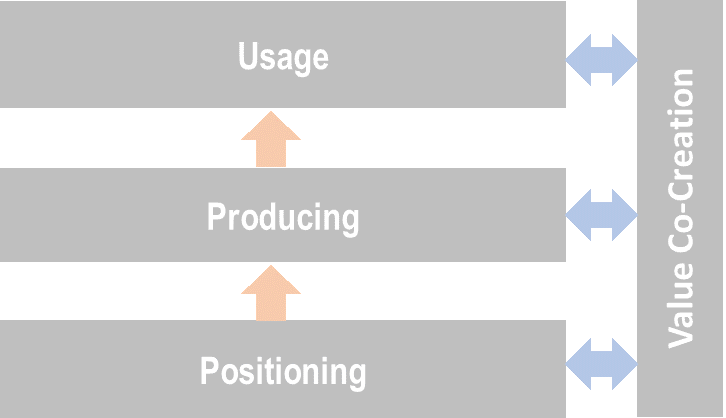
Fig. 1: Service Stack
Producing: deals with the service lifecycle from design to delivery.
Usage: deals with customer interaction, consumption and evaluation.
Value Co-Creation: deals with creating a mutually beneficial service. It is the basis of the service’s reason of existence.
The complexity and diversity of this theme will be discussed by the panellists based on the Service Stack.
Prof. Dr. Tamio Arai, University of Tokyo, Japan
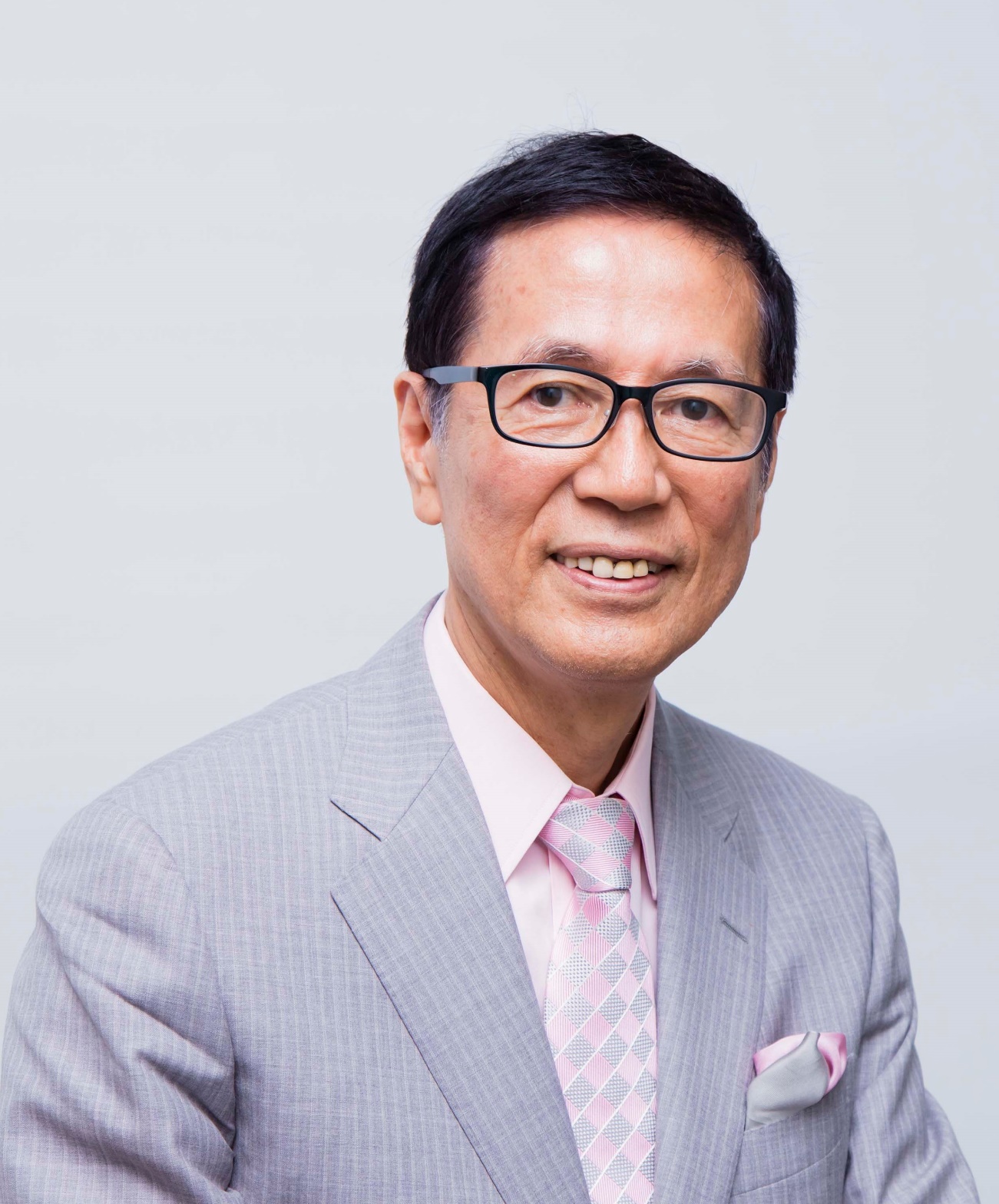
Prof. Dr. Yoshinori Hara, Kyoto University, Japan
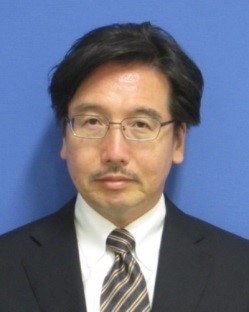
Khushnud Irani, LafargeHolcim, Switzerland
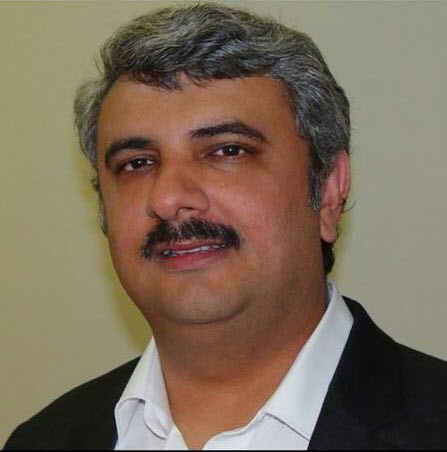
Prior to joining Holcim, Khushnud was EVP and CIO at Qualiflyer Loyalty Ltd—a Group company of SWISS International Airlines responsible for managing the Frequent Flyer Customer Loyalty program for several million members worldwide.
Apart from IT, Khushnud led the various operational business shared services areas which included member servicing and back-office operations. He led major outsourcing initiatives which saved the company 40% yearly costs and improved customer satisfaction & operational efficiencies.
Khushnud holds an Executive MBA degree from IMD Lausanne and has graduated in Physics from Mumbai University. He has also attained his Honours Diploma in Systems Management. He is based in Switzerland since 2000.
Aljosa Pasic, ATOS, Spain
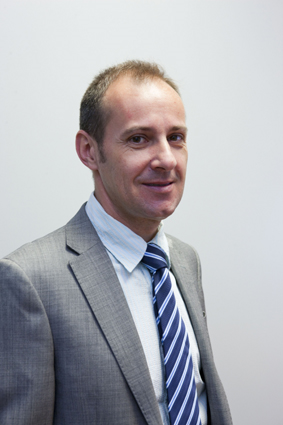
Dr. Martin Petry, Hilit AG, Liechtenstein

Prof. Dimitris Karagiannis, University of Vienna, Austria (moderator)
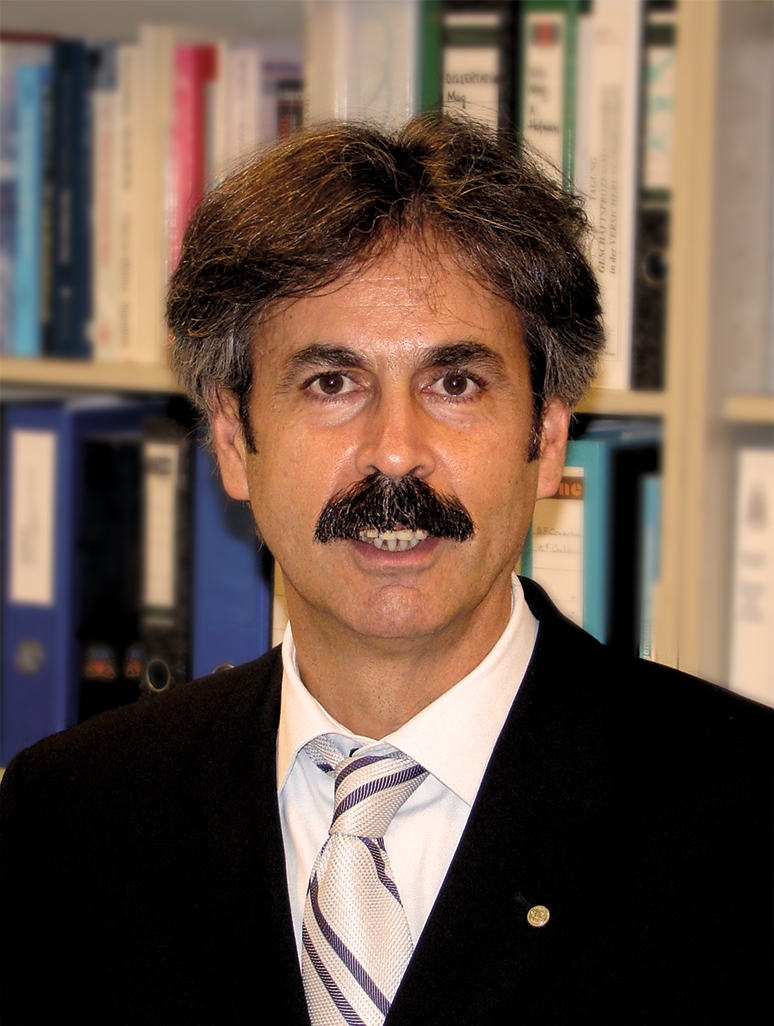
Since 1993 he is full professor at the Faculty of Computer Science at the University of Vienna and head of the Research Group Knowledge Engineering. 2011 he was awarded an honorary professorship by the Babes-Bolayi University Cluj-Napoca in Romania.
As head of the Knowledge Engineering group his main research areas are Business Process Management, Meta-Modelling, and Knowledge Management. Prof. Karagiannis has published several books and scientific papers in journals and conferences on Knowledge Databases, Expert Systems, Business Process Management, Workflow-Systems and Knowledge Management. In 1995 he established the Business Process Management Systems Approach (BPMS), which has been successfully implemented in several industrial and service companies. He is the founder and head of the supervisory board of the BOC Group (http://www.boc-group.com).
2008 he was a founding-member of the Open Models Initiative and has created 2012 the Open Models Laboratory (http://www.omilab.org).
In addition to his long-standing engagement in national and EU-funded research project, Prof. Karaginnis is acting since 2005 as a reviewer for the European Commission. He is a member of IEEE and ACM and serves on the steering committee of the Austrian Computer Society.
Keynote: Co-creating a Disruptive Future
Wednesday, July 12, 2017 | 09:30 - 10:30
Abstract
Speaker

He received MBA from the Johnson Graduate School of Management, Cornell University, and Bachelor of Laws from the University of Tokyo.
Session 1: Service Design
Wednesday, July 12, 2017 | 11:00 - 12:30
Serviceology-as-a-Service: a Knowledge-centric Interpretation
From Service Design to Enterprise Architecture: The alignment of Service Blueprint and Business Architecture with Business Process Model and Notation
Modeling Digital Enterprise Ecosystems with ArchiMate: A Mobility Provision Case Study
Session 2: Service Management and Operations
Wednesday, July 12, 2017 | 11:00 - 12:30
ToDoList-oriented Process Modeling for Sharing Service Processes and Context
Analysing and Computing the Risk of Customer Integration for a Service Provider
Service Digitization in the Consulting Domain – Classification and Service Implementation for a Digital Consulting Front Store Pilot
Session 3: Service Design
Wednesday, July 12, 2017 | 16:00 - 17:30
Service-driven enrichment for KbR in the OMiLAB Environment
A Modelling Method for Digital Service Design and Intellectual Property Management towards Industry 4.0: CAxMan Case
Stiction-free learning method for Service Design beginner
Session 4: Service Management and Operations
Wednesday, July 12, 2017 | 16:00 - 17:30
Investigation into the Evolution of Management in Indie Game Services
An Approach to compute the Risk and Cost of Customer Integration during Software Engineering
Estimation of Tension and Concentration Scenes during Crane Operation Using Physiological Indices for Skill Improvement Support
Special Session: Holistic Approach of Service Modelling
Wednesday, July 12, 2017 | 11:00 - 12:30
BPaaS Marketplace: Demonstration of "Sending Invoice" Offerings in the Cloud
BPaaS Design: Modelling Cloud Offering for "Sending Invoice Process"
BPaaS Allocation: Configuration of appropriate IT-Infrastructure for Cloud Offering
BPaaS Execution: Demonstration of the adaptive Deployment and Execution of Processes in the Cloud
Special Session: Holistic Approach of Service Modelling
Wednesday, July 12, 2017 | 16:00 - 17:30
BPaaS Evaluation: Cross Layer Abstraction of Cloud and Process Measures for business view abstraction
Open Communities for Research: ADOxx for Modelling and CloudiFy for Cloud Computing
Proposal of a Standard Service Business Case for Developing Service Ecosystem Simulators
Enabling Digital transformation in SMEs by Combining Enterprise Ontologies and Service Blueprinting
| 08:00 - 09:00 | Registration |
| 09:00 - 09:30 | Conference Opening |
| 09:30 - 10:30 |
Keynote
Co-Creating a Disruptive Future Dr. Yoshikuni Takashige, Fujitsu |
| 10:30 - 11:00 | Coffee break |
| 11:00 - 12:30 | |
| 12:30 - 14:00 | Lunch break |
| 14:00 - 15:30 |
Podium Discussion
The Meaning of Service in the Age of Digital Transformation Prof. Tamio Arai, University of Tokyo, Japan Prof. Yoshinori Hara, Kyoto University, Japan Khushnud Irani, LafargeHolcim, Switzerland Aljosa Pasic, ATOS, Spain Dr. Martin Petry, Hilti AG, Liechtenstein Prof. Dimitris Karagiannis, University of Vienna, Austria (moderator) |
| 15:30 - 16:00 | Coffee break |
| 16:00 - 17:30 |
Thursday, July 13, 2017
Keynote: Building Trust with Partners for Value Co-Creation in Service Systems
Thursday, July 13, 2017 | 08:30 - 09:30
Abstract
Speaker

Session 5: Human-Centered Service
Thursday, July 13, 2017 | 10:00 - 11:30
Consumer's Responses to Service Failures and Recoveries
Analyzing an Ecosystem for Complex Consumer Services
Approaches for sustaining cultural resources by adapting diversified context of customers in tourism: Comparison between Japanese and Slovenian cases
Session 6: Theoretical Perspectives on Service
Thursday, July 13, 2017 | 10:00 - 11:30
The Resonant Influence of Risks on Supply Chain Performance. An Empirical Study at Construction Service Sector
Perceived characteristics of smart interactive services and determinants of adoption intentions
Towards Understanding Intelligence in Service Systems
Session 7: IoT-based Services
Thursday, July 13, 2017 | 11:30 - 13:00
From Software Services to IoT Services: The Modeling Perspective
A Modeling Mothod for Smart Mobile Service with Temporal Deadlines in IoT Environment
Application-Driven Product-Service System Configuration: Customer-Centered Strategy
Session 8: Theoretical Perspectives on Service
Thursday, July 13, 2017 | 11:30 - 13:00
Determinants of the Use of e-Commerce in Online Shops in the Polish Market from the Perspective of Individual Customers
Service Ecosystem Analysis by Multi-Agent Simulation for Designing Sustainable Services
Special Session: Services and Green Economy
Thursday, July 13, 2017 | 10:00 - 11:30
Environmental Economic Geography from a Service Perspective
Recycling as a Service - a New Business Model to Recover Critical and Precious Metals from Industrial Wastes
Integrated Product and Service Offerings - a Means to Achieve Economic and Environmental Competitiveness through Value-added Services
Servitization as an Enabler for Product Circulations
Special Session: Meaningful Technology for Seniors
Thursday, July 13, 2017 | 11:30 - 13:00
Meaningful Technology for Seniors: Analytical Framework for Elderly-Care Service Systems
Comparison of Japanese and Finnish Attitude Regarding Technology Use in Nursing-care Service
Do Active Seniors Find Digital Reminiscence Meaningful? A User Study
Study on Communication Support for Employees with ICT in Elderly Care
| 08:00 | Registration |
| 08:30 - 09:30 |
Keynote
Building Trust with Partners for Value Co-Creation in Service Systems Mio Shimizu, NEC Corporation |
| 09:30 - 10:00 | Coffee break |
| 10:00 - 11:30 | |
| 11:30 - 13:00 | |
| 13:00 - 14:30 | Lunch break |
| 14:30 - 17:30 |
Poster Session Exhibition of 30 posters |
| 17:45 | Departure for Gala Dinner |
| 18:00 | Guided Tours through the Museum of Art History |
| 19:00 | Gala Dinner in the Cupola of the Museum of Art History |
Friday, July 14, 2017
Keynote: Service as Intersubjective Struggle: A Study of Sushi
Friday, July 14, 2017 | 08:30 - 09:30
Abstract
Speaker

Session 9: Service Practices
Friday, July 14, 2017 | 10:00 - 11:30
Automating Motivation: A workplace analysis of service technicians and the motivational impact of automated assistance
Multiproduct Japanese Cuisine Restaurant Improves Labor Productivity by Changing Cooking Processes Using a Partial Refrigerator
Finding the Gap between Service Companies and Customers in Terms of So-cial CRM: An Exploratory Study of Japan’s Tourism Industry
Session 10: Service Practices
Friday, July 14, 2017 | 11:30 - 13:00
Service-oriented Public Administration
Medical Service System in Japan from Service capability perspective
An Analysis of the cognitive processes related to "service awareness" of cabin attendants
Session 11: Service Engineering and Technologies
Friday, July 14, 2017 | 14:30 - 15:30
An Approach to Model Industry Ecosystems - Enabling an Ecosystem for Service Platforms
Model-based reasoning regarding risk management maturity levels
A Model for Carbon Footprint Labeling of Manufacturing Processes
Session 12: Service Innovation
Friday, July 14, 2017 | 14:30 - 15:30
A proposal of a visualization method for service ideas using paper card based-fieldwork
Introduction to Service Prototyping Tool Box
Services as a platform to promote prosocial behavior in the elderly
Session 13: Value Co-Creation and Context
Friday, July 14, 2017 | 14:30 - 15:30
Knowledge Science as the Core Logic of Resource Integration: An evolutionary view of value propositions in S-D logic
Value co-creation and service ecosystem for developing countries to promote development and inclusive growth: Home Based Workers’ case
Special Session: Design and Support Technology for Value Co-Creation
Friday, July 14, 2017 | 10:00 - 11:30
Improving Labor Productivity by Changing Cooking Process at a Multiproduct Japanese Cuisine Restaurant Using Partial Refrigerator
An Economic Field Experiment of Menu Ordering in Restaurant Services
Lab-Forming Fields and Field-Forming Labs
An Economic Lab Experiment for the Best Offer and Approval in Face‐to‐Face Service Interaction Situation
Special Session: Meaningful Technology for Seniors
Friday, July 14, 2017 | 10:00 - 11:30
Co-creating Meaningful Technologies - Agile Digitalization Development Processes and Experiments in Elderly People’s Housing Services
Public Discussion on Robotic Innovations in Finnish Elderly Care
Applicability of Wearable Devices with Photo Sensors for Elderly Healthcare Applications
Special Session: Design and Support Technology for Value Co-Creation
Friday, July 14, 2017 | 11:30 - 13:00
Shift Scheduling to Improve Customer Satisfaction, Employee Satisfaction and Management Satisfaction in Service Workplace where Employees and Robots Collaborate
Development of a Three-stage Public Observation Service System Model with Logics for Observation/Assessment
A Staff Shift Scheduling Method Considering Constraints of Allocating Plural Tasks in Restaurant Business
| 08:00 | Registration |
| 08:30 - 09:30 |
Keynote
Service as Intersubjective Struggle: A Study of Sushi Prof. Yutaka Yamauchi, Kyoto University |
| 09:30 - 10:00 | Coffee break |
| 10:00 - 11:30 | |
| 11:30 - 13:00 |
Session 10 Special Session Workshop |
| 13:00 - 14:30 | Lunch break |
| 14:30 - 15:30 | |
| 15:30 - 16:00 | Coffee break |
| 16:00 - 17:00 | Closing Ceremony |
Tutorial: Semantic-based Modeling for Services using the SeMFIS Platform
Friday, July 14, 2017 | 10:00 - 13:00
About
Speaker
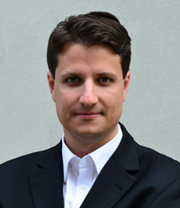
| 10:00 - 13:00 |
Tutorial Semantic-based Modeling for Services using the SeMFIS Platform Prof. Hans-Georg Fill, University of Bamberg, Germany |
